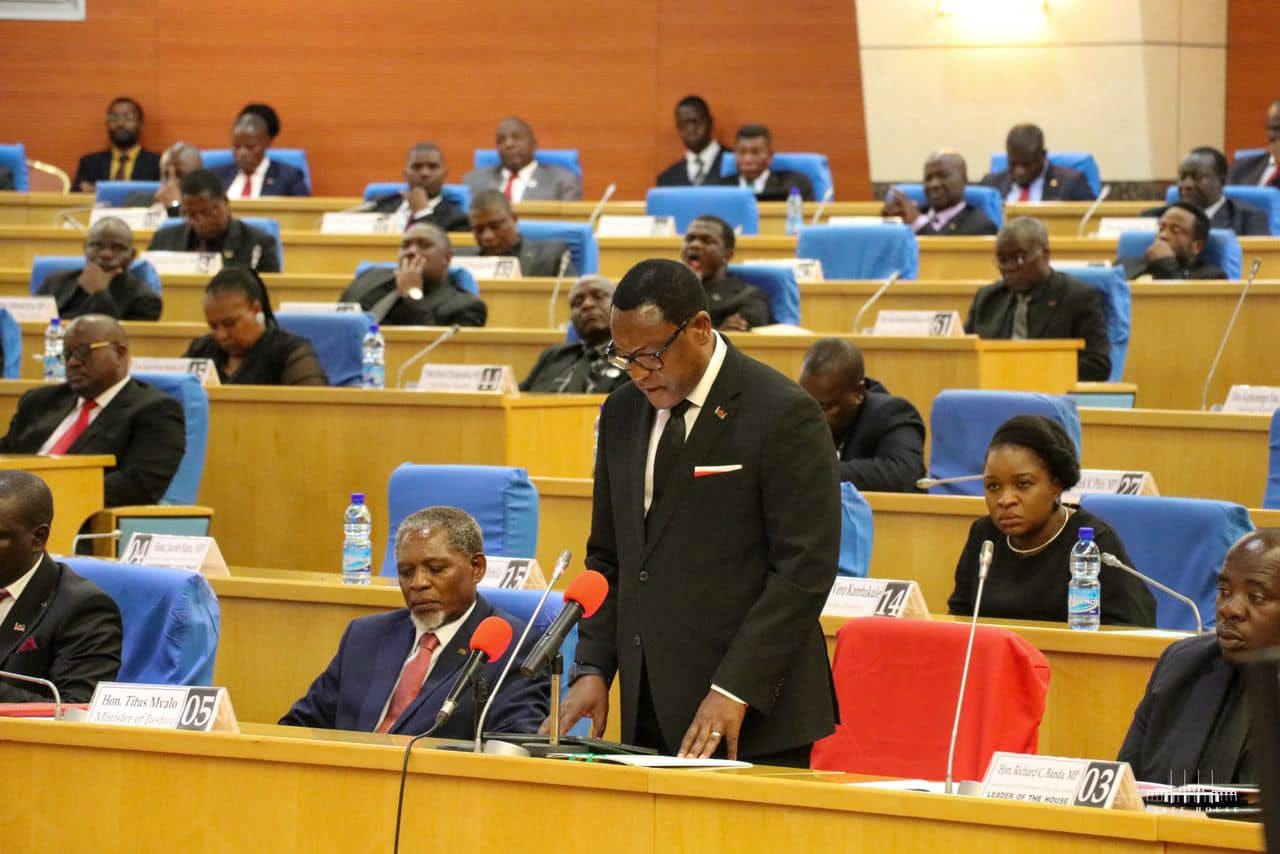Malawi Mourns as Death Toll from Tropical Cyclone Freddy Tops 500: Worst Climate Change Event in Living Memory
Malawi President Lazarus Chakwera has reported a death toll of over 500 from the devastation caused by Tropical Cyclone Freddy in the southern region of the country, writes Winston Mwale.
Malawi-Malawi President Lazarus Chakwera has reported a death toll of over 500 from the devastation caused by Tropical Cyclone Freddy in the southern region of the country, writes Winston Mwale.
In a speech to parliament on Wednesday, President Chakwera stated that the cyclone induced torrential rains, causing flooding in half of Malawi's districts, making it the worst climate change event in living memory.
"In case anyone is tempted to think that this is a small number, I remind you that the death toll would be the same if all of you Members of Parliament, your spouses, and one other member of your families all died in one day, thus wiping out the entire legislative branch of our Government from the face of the earth," Chakwera said.
Chakwera also reported that over 1,300 people sustained injuries, while more than 530 are still missing and unaccounted for. The cyclone has also caused psychological trauma and suffering among Malawians.
"A second source of anguish is the sight of loved ones injured, as well as the distress of securing the medical treatment they need from health facilities that were already overstretched before the storm hit. A third source of anguish is the fact that we still have over 530 people missing and unaccounted for," Chakwera said.
The president declared a 14-day period of mourning and ordered flags to fly at half-mast for the first half of that period.
However, he emphasized that the nation cannot afford to mourn with their arms folded and called for support from international partners and local stakeholders to address the enormous needs facing the country.
"Cyclone Freddy is precisely that kind of catastrophe," Chakwera said. "If we are going to emerge from this dark hour and see the dawn of a brighter day, we must take this catastrophe as a challenge that we must meet head-on, and we must meet it together."
In his speech to parliament, he unveiled "Operation Tigwirane Manja," a four-objective mission aimed at ensuring proper burials for the deceased, bringing those stranded in unsafe areas to shelters, coordinating all actors, and securing as much support as possible from international partners and local stakeholders.
Chakwera also reported that over 1,300 people were injured, and the trauma and anguish experienced by the survivors was "unimaginable."
"Cyclone Freddy dumped the equivalent of 6 months of rainfall in 6 days," according to the Malawi chapter of the World Food Programme, causing flooding in 14 southern districts.
The rains continued beyond the cyclone, hampering relief efforts.
President Chakwera, who was attending the 5th Summit of the 46 Least Developed Countries in Qatar when the cyclone hit, immediately declared a State of National Disaster upon his return to Malawi and engaged South African President Cyril Ramaphosa for assistance.
Private sector players in South Africa responded with donations, including 1 million Rands to the Department of Disaster Management Affairs (DoDMA).
"The deluge from Cyclone Freddy has brought our country to its knees more than any climate change event in living memory," said Chakwera.
He called for all Malawians and international partners to "pull in the same direction" to meet the "enormous needs" the country is facing.
"If you would consider such an event a national catastrophe worthy of the attention of all the nations in the world and the attention of every citizen in our country, then I submit to you that Cyclone Freddy is precisely that kind of catastrophe," the president added.
The four objectives of "Operation Tigwirane Manja," which Chakwera launched immediately upon his return, are to ensure proper burials for the deceased, bring those stranded to safety, coordinate all actors, and secure as much support as possible from international partners and local stakeholders.
Chakwera personally inspected the devastation and briefed parliament on the extent of the disaster.
The cyclone inflicted incalculable human suffering, causing physical injuries and psychological trauma, according to Chakwera.
The loss of life, injuries sustained, and missing loved ones caused immense anguish for the survivors.
"A third source of anguish is the fact that we still have over 530 people missing and unaccounted for. Behind that number are stories of husbands who have no idea what became of their wives, of wives who have no idea what became of their husbands, of children who know not the fate of their parents, of parents who are missing a child, and of neighbours who have no knowledge of where someone next door or down the road ended up," he said.




